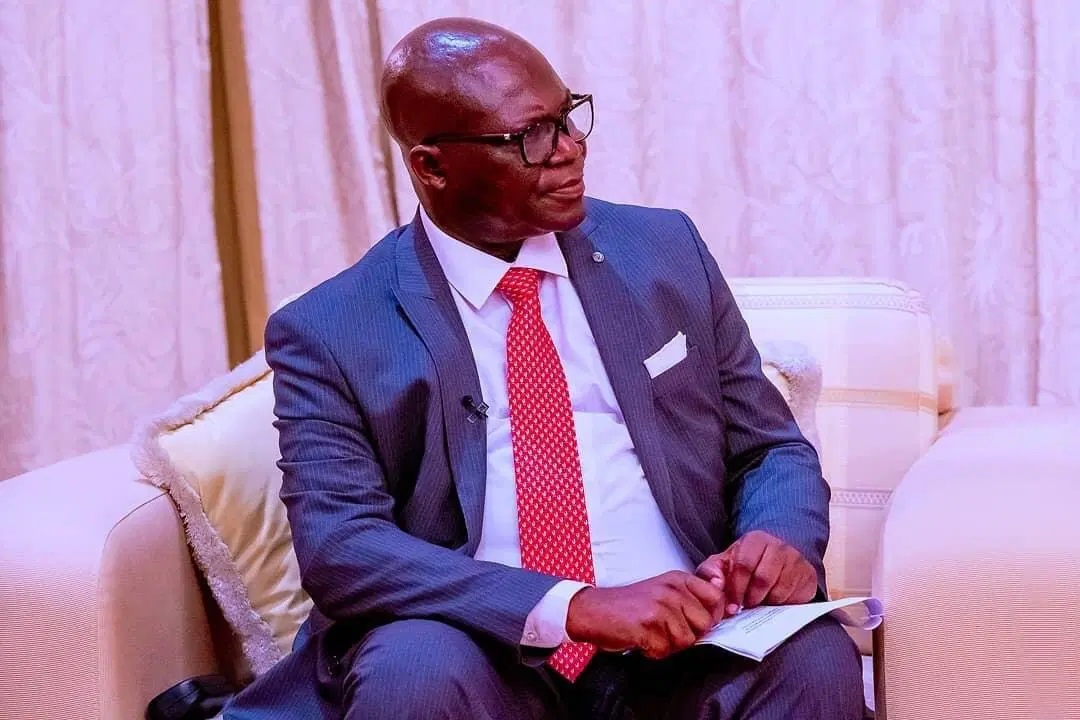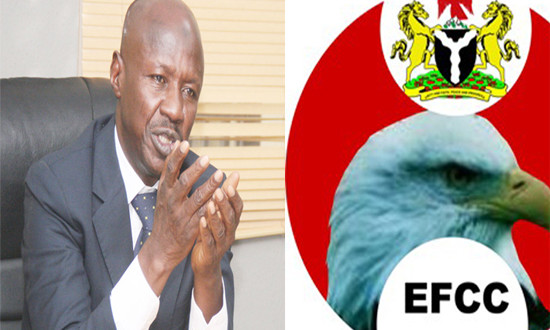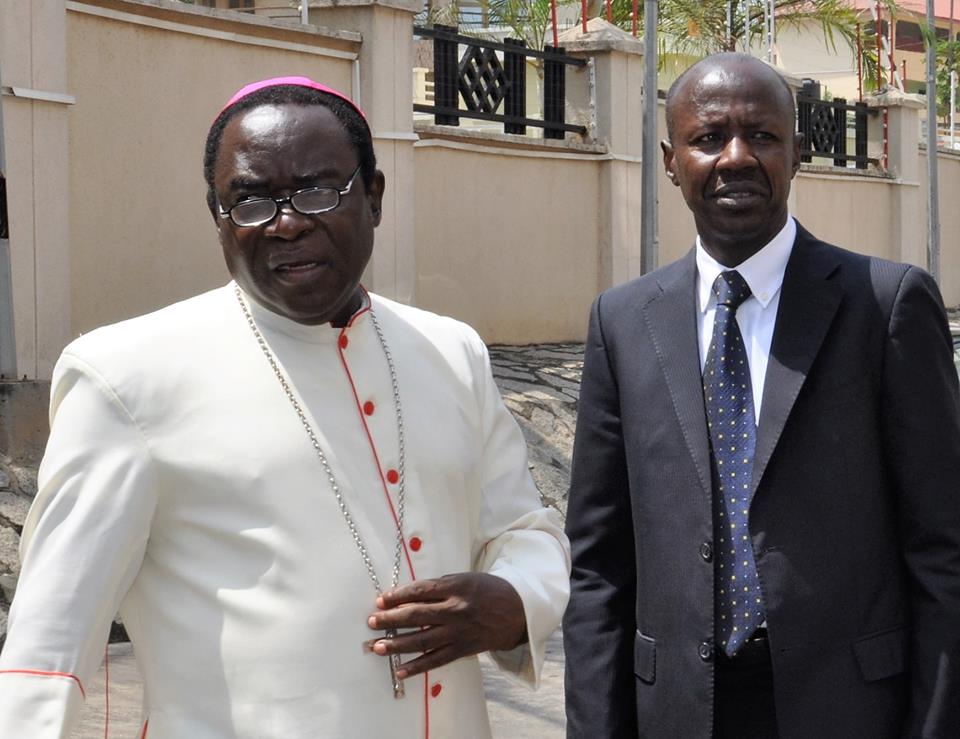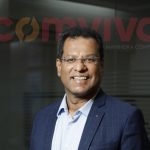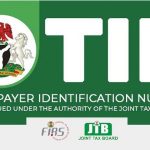Feature/OPED
A Day With The Gày Community
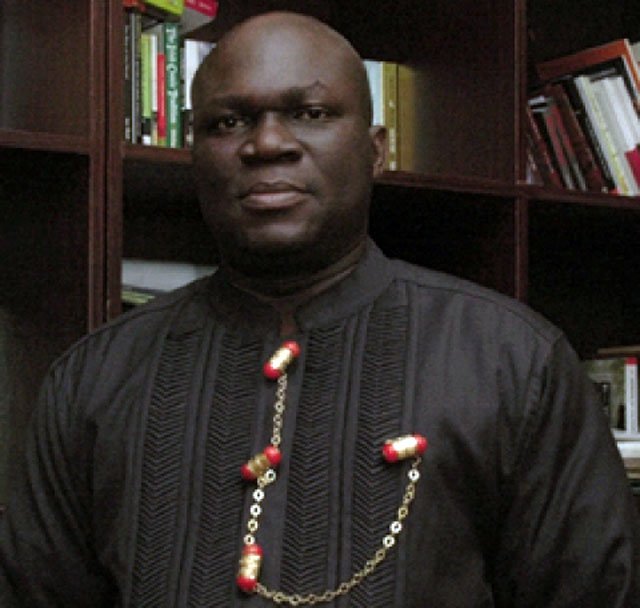
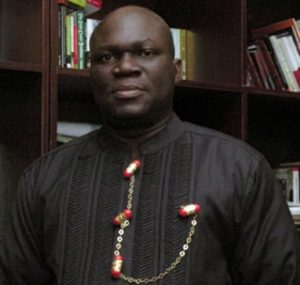
By Reuben Abati
I was invited to deliver the keynote address at this year’s special event on ‘Human Rights, Sèxuality and the Law’, an annual symposium organized to promote awareness on issues relating to the plight of the Lèsbian, Gày, Bisèxual, Trànsgender, Queer and/or Intersèx (LGBTQI) Community in Nigeria. When this was announced on social media by the organizers, The Initiative For Equal Rights (TIERS) and @YNaija, hell practically broke loose within the LGBTQI community.
I was dismissed as a wrong choice, and the organizers were accused of being insensitive to the feelings of the community. A broad-based protest was launched on twitter and there were essays on the subject on NoStringsNG.com (the online media advocacy platform for LGBTQI issues in Nigeria), with the most scathing objection written by Bisi Alimi, the Nigerian-born, London-based gày rights activist. Bisi Alimi described me as a “homōphobe.” He said the invitation extended to me was an abuse of TIERS, and he was offended that a group he had helped to co-found would offer its platform to an “oppressor.”
Following a pre-event twitter chat with me on the subject, co-ordinated by @YNaija, the attacks got even more aggressive. Someone wrote that having Reuben Abati as Keynote Speaker was like inviting the “KKK to an NACCP event.” An article written by Kritzmoritz and published by KitoDiaries.com (another Nigerian LGBTQI blog) was titled “Of TIERS, Reuben Abati and all that angst.”
The anonymous author reflected the sentiments of the gày community in the following words: “Let me get this out of the way from the onset so we are clear. I don’t like Mr Reuben Abati. Over the past five years, I have come to view him as a rather unpleasant human being…” Another commentator, Mandy in a piece titled “There is no engaging with a keynote Speaker” took the additional step of launching an online petition and called for signatures to “drop Reuben Abati” because in his or her view: “you cannot invite the person who killed me to come apologize at my funeral; things are not done that way.”
My offence is that I had participated in a discussion of the Same Sèx Marriage (Prohibition) Act 2014 shortly after President Goodluck Jonathan signed it into law. Alimi, in particular, was on an Al-Jazeera panel with me. He argued that I exhibited homōphobia, defending the law. The complaints by the gày community were so loud and their objection to the possibility of my being allowed to invade “their space” was so trenchant. I called the organizers to ask if they were considering a change of mind about their choice of Keynote Speaker. Their answer was in the negative.
On December 14, I participated in what turned out to be a lively, engaging, open and inclusive symposium on Human Rights, Sèxuality and The Law. I did not see any reason to beat about the bush. I opened my address with a response to Alimi and the critics. The labels used to describe me do not fit me. I am neither a homōphobe nor an extremist. My views are liberal and I consider the rights of every man to be ontological, interdependent and indivisible. These rights are well-covered in all the major nine documents on International Human Rights, including the Universal Declaration on Human Rights (1948) and its 30 articles, the International Convention on the Elimination of All Forms of Racial Discrimination (1965), the International Covenant on Civil and Political Rights (1966) and the International Convention on the Elimination of All Forms of Discrimination Against Women (1979). Nigeria is a signatory to majority of these conventions, protocols and covenants as well as the African Charter on Human and Peoples’ Rights (1981). Chapters Two and Four of the Nigerian Constitution, 1999, expressly uphold these rights.
The enactment of certain legislations such as – The Fundamental Rights (Enforcement Procedure) Rules 2009, HIV/AIDS (Anti-Discrimination) Act, 2014, Violence Against Persons (Prohibition) Act, 2015, the National Human Rights Commission Act, 2015, the Prohibition Against Domestic Violence Law No 15 of Lagos State, 2007, Gender Based Violation Prohibition Law of Ekiti State, 2011, Trafficking in Persons (Prohibition) Law Enforcement and Administration Act, 2003, the Legal Aid Act, 2011 and the Child Rights Act, 2003 – also point to considerable advancements in human rights legislation in Nigeria since 1999. Human rights are important. They are indeed matters of urgent and high priority because they are at the core of the idea of our humanity. They are indispensable vehicles for achieving peace, stability, justice and development in the world. Every human being is entitled to these rights; to devalue the right of any person is to violate that person’s right to dignity and justice.
Nigeria in spite of acknowledged advancements remains a nightmare where human rights are concerned. The failure of institutional mechanisms and the absence of political will to translate constitutional rights into effective human rights realities have resulted in what is clearly a governance and accountability crisis. The average Nigerian suffers the after-effects in various ways: poverty, lack of access to justice, violence, kidnappings, police brutality, extortion, wanton resort to self-help by both state and non-state actors, and a general regime of lawlessness reminiscent of the brutal days of military rule. Political leaders and state officials are so powerful that they have no regard for the people. They choose when it is convenient for them to respect court orders.
There is a disconnect between Nigeria’s international human rights obligations and what it does at home, creating conflicts and tensions in the implementation of human rights law. Nigeria is a member, for example, of the ECOWAS Community Court of Justice, but the government routinely ignores the rulings of this strategic regional court. Non-state actors are emboldened by the negligence of state actors to take the law into their hands, as seen in the conflict between Corporate Responsibility and Human Rights in Nigeria. Nigeria is a member of the International Labour Organization, the enabling principles of which are covered in the Labour Act, 2004, but with the unemployment crisis in the country, employers of labour trample on the rights of workers at will. The non-justiciability of the social, economic, cultural and group human rights goals in Chapter Two of the Nigerian Constitution further compounds the nightmare.
It is within this overall context of the human rights situation in Nigeria, that the issue of sèxuality is to be located. Section 15 (2) of the 1999 Constitution talks about national integration without discrimination on the grounds of sèx, among others. Section 17 states that the social order is founded on the ideals of “freedom, equality and justice”, while Section 17(3) says state policy shall be directed towards “all citizens, without discrimination on any group whatsoever”, a goal that had earlier been covered also in Section 14(2)(b). Section 42 further upholds every Nigerian’s right to freedom from discrimination. Whereas the Constitution talks about sèx, and not sèxuality or gender orientation, the principle of equality before the law and the right to be human is without exemption of any persons or groups. Article 2 of the International Covenant on Civil and Political Rights indeed says sèx should be taken to include sèxual orientation and gender.
Minority groups are often targets of violence in Nigeria – apart from ethnic and religious minorities, women, children, the girl-child and the physically challenged, perhaps the most targeted and the most violated in recent times are members of the LGBTQI community. Gàys in Nigeria have found themselves in a hostile society. There have been reported cases of persons with suspected LGBTQI orientation being subjected to various forms of violence: kidnapping, extortion, ràpe, assault, inhuman and degrading treatment, denial of access to justice and curtailment of their fundamental rights. The state looks the other way, the rest of society says serves them right.
There is no plan or structure in place for protecting gày persons in Nigeria from outright violation even by the police and the state. Section 214 of the Criminal Code criminalizes “any person who has carnal knowledge of any person against the order of nature”. Section 217 thereof frowns at “gross indecency”. Similarly, Sections 284 and 405-408 of the Penal Code, and the Sharia Law in 12 states of the North make homosèxuality a punishable felony. Public hostility towards the LGBTQI is widespread. It is risky to reveal sèxual orientation in Nigeria. No political party or politician has formally endorsed LGBTQI rights in Nigeria.
The Same Sèx Marriage (Prohibition) Act 2014, which is a particular source of anxiety and the target of protest by the Nigerian and global LGBTQI community, establishes a legal basis for formal discrimination on the grounds of sèxuality. This law forbids any form of gày marriage, or civil union (sections 1-3), the registration of gày clubs, societies and organisations or the holding of gày meetings (section 4(1)) and the display of amorous relationship between two persons of the same sèx in Nigeria (section 4(2). Anybody who enters into a same sèx marriage contract or runs a gày club or association or group or is seen to be aiding and abetting homosèxuality is considered guilty of a felony. The punishment ranges from 10 to 14 years (section 5). Although the SSMPA deals with marriage or civil union, it is a much stronger law than the Criminal and Penal Codes and the Sharia on gày issues. It is a law fraught with ambiguities, which devalue the gày person’s rights to privacy, dignity of the human person, freedoms of expression and freedom from discrimination.
But it remains a popular law with the majority of Nigerians who rely on culture and traditional values, public morality as defined in Section 45 (1) of the 1999 Constitution, and the fact that Nigeria being a sovereign nation should be free to make its own laws and not subject itself to Western notions of sèxuality. Research findings accordingly indicate that more than 95 percent of the Nigerian population considers homosèxuality a sin. Religion and culture remain major barriers to human rights expression as seen in the case of Christians quoting such anti-gày Scriptural passages as Leviticus 18:22, 20:23, the poor fortunes of the Child Rights Act in spite of its ratification by 26 out of 36 states, constructive and continuing gender discrimination, and the disgraceful politicking over the Gender Equality and Prohibition of Violence Against Women Bill, 2016 which has now been reduced pathetically, at second reading, to a bill on violence and sèxual abuse.
There are specific posers to be raised in relation to the SSMPA 2014. One, culture to the extent of its dynamism should evolve, and must not be erected into a given barrier to human rights expression. Two, human rights and sovereignty should not be antithetical. Three, who should determine what is right and wrong? Is there an objective universal morality in a world of diverse beliefs and practices? And is morality necessarily as determined by the majority? Can the majority possibly be wrong in a democracy?
Where sèxuality is concerned, the insistence on basic rights can only be a continuous and inclusive struggle. The debate can only continue to evolve as society itself evolves. The irreducible minimum lies in the need by state and non-state actors to continue to make efforts to dismantle barriers and extend the frontiers of how human rights are respected, protected and fulfilled. Gày persons in Nigeria are subjected to police brutality and assault, targeted killings, hate crime, and sundry forms of discrimination. Their relatives are stigmatized. The jungle justice that is imposed on the community is outside the province of the law. Enforcing the law as it is, until it is amended, revised, or repealed, should be within the province of the rule of law, not the jungle. The right of all persons to freedom, justice and equality should be considered sacrosanct. Any law, which contradicts this principle, in its operation or expression, is to the extent of its inconsistency, questionable.
The more memorable aspect of the 2016 symposium on Human Rights, Sèxuality and the Law, attended by both gày and non-gày persons, was the interactive session where further issues were raised and interrogated. One fellow stood up and insisted that I needed to apologise to the LGBTQI community for views I had expressed in the past. My response was that when I defended the SSMPA publicly in 2014, I was doing my duty as the Official Presidential Spokesperson. In that capacity, it was part of my responsibility to explain and promote government policies and decisions. A spokesman’s loyalty is to country, state, government and principal; he or she is essentially a Vuvuzela. Besides, the SSMPA is not a law about my personal views but the values and the choice of the majority of Nigerians. What people do with their private lives is their business as free human beings without interpreting freedom as absolute, however, but as a guarantee for the equality of all persons.
Someone else wanted to know why President Jonathan considered it expedient and urgent to sign a bill that was first proposed in 2006 into law. The chronology is that the National Assembly rejected the bill in 2007. It was passed by the Senate on Nov 29, 2011, by the House of Representatives on May 30, 2013 and signed into law on January 13, 2014. If President Jonathan had withheld assent, the National Assembly could have exercised its power of veto override. What is required, in all of this, to be honest, is not ex post facto hand-wringing and blame games, but continued advocacy and awareness building. Incidentally, the African Commission on Human and Peoples’ Rights has called on the Nigerian Government to consider a revision of the SSMPA given the manner in which it is being exploited to violate fundamental human rights. A day may well come when this would happen in line with the Yogyakarta Principles on sèxual orientation and gender identity, as has been experienced in Mozambique, Nepal and Nicaragua.
A lady stood up and added: “Dr Abati, it is important that you realise you are in our space. This is a very sensitive space and community. My husband is your very good friend, but I still think you owe this community an apology because even when doing your job as a government official, there are certain things you should not say.” I thought I already answered that question. Another lady intervened: “Hi, Dr Abati, I am made to understand you don’t believe we exist in Nigeria. Well, now you know we do. I am a citizen. I work in this country. I pay my taxes. My name is Pamela. And I am a Lèsbian.” I have never said any such dumb thing as to insist that the LGBTQI community does not exist either in Nigeria or elsewhere in Africa. Having read Bernadine Evaristo and other writers on the subject, I have a clear understanding.
I left the symposium with two special gifts. The 2016 Human Rights Violations Report Based on Real or Perceived Sèxual Orientation and Gender Identity in Nigeria, a 61-page publication by TIERS Nigeria which was formally presented at the occasion and “Tell Me Where I Can Be Safe”: The Impact of Nigeria’s Same Sèx Marriage (Prohibition) Act, a 108-page publication by Human Rights Watch. Both publications provide detailed and up-to-date information including statistics and the impact of the law with regard to the status of the LGBTQI community in Nigeria, focusing mainly on human rights violations on the grounds of sèxual orientation and gender identity. I recommend both publications for general reading and for the benefit of those seeking answers on the subject under review.
Sitting by my side during the interactive sessions was Olumide, the gifted and resourceful activist who runs TIERSNigeria. We reviewed the comments as they flowed forth from the participants in the room. What is clear is that there is a vibrant LGBTQI community in Nigeria led by internationally exposed, media-savvy and knowledgeable young men and women who are determined to insist on their fundamental human rights and their right to be who they want to be. They are aggrieved. They are organized. They have set up platforms for self-expression including the use of technology, publications, movies (re: Hell or High Water, November 2016), the media and other social networking opportunities. Their voice is likely to grow louder as they become more organized. For how much longer can they be ignored?
As the event drew to a close, the microphone got to a young fellow who incoherent at first, still managed to deliver his punch-line killer: “Please, I don’t understand what people are saying. They are saying they are liberal, or that we need to unlearn certain things. Liberal, about what? When you say you are liberal, it is like you are patronizing us. Can you talk about rice when you have not even tasted it?” Yes, I think. One of the privileges of intellection is the right to talk robustly and nineteen to the dozen about rice, without ever tasting it.
Feature/OPED
Ledig at One: The Year We Turned Stablecoins Into Real Liquidity for the Real World
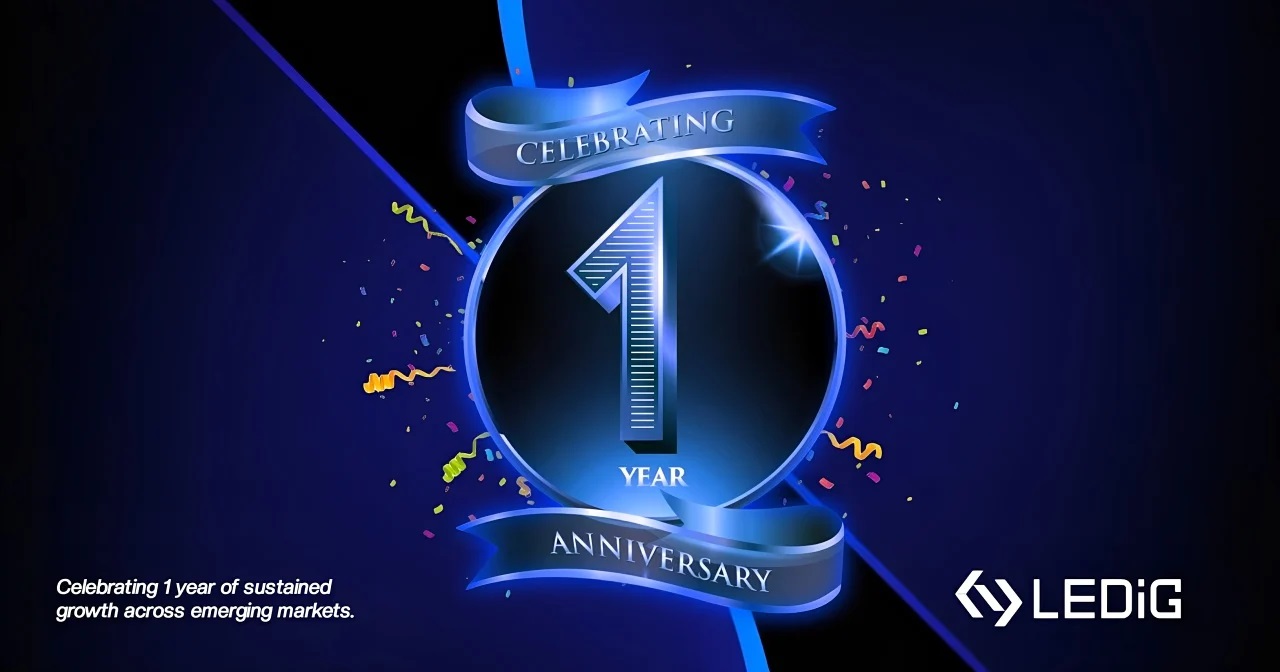
Ever tried sending a large amount of money into or out of certain markets and felt your stomach twist a bit? That was the feeling many companies carried long before Ledig existed. Delays. Guesswork. Phone calls that sounded unsure. People waiting on people, and no reliable derivatives hedging protocol to shield them from currency swings. It was messy.
That frustration is what pushed us to open Ledig to the world a year ago. We wanted a system built for big transfers. Not a few hundred dollars. Serious amounts. A hundred thousand. A million. Even more. And we wanted it to move in seconds, not a strange timeline that no one could explain.
So, we built a setup that lets companies bring in stablecoins and get local currency out quickly. We also kept the opposite direction just as clean. Local currency in, stablecoins out. Both ways needed to feel the same because business doesn’t move in only one direction. Some clients even switch between the two during the same week.
In the early days, people sent smaller amounts to test us. Fair enough. But once they saw a large payment settle almost instantly, confidence spread. This is how we crossed our first $100M. Most of that came from global companies working across Africa and other emerging markets. These firms care about stability, not buzzwords. They just want their money to land where it should.
A lot of the magic sits behind the scenes. Wallets. Local settlement tools. A solid FX engine that adjusts as needed. None of this appears on the surface. All a user sees is a simple dashboard or a set of API calls that get the job done. They don’t even need to think about crypto. The tech exists under the hood, doing the heavy lifting quietly.
But fast movement alone wasn’t enough.
Ledig derivatives hedging protocol
There was another problem staring companies in the face. Currency swings. And they hurt. Imagine finishing a project today and waiting ninety days to get paid in a currency that drops often. By the time the company receives the money, the value has fallen so much that the profit is almost gone. This is a real issue, and many firms have lived through that shock.
This is where our derivatives hedging protocol stepped in. It lets companies lock in their value early so they don’t get caught off guard later. The product ran off-chain at first and still passed $55M in activity. Now we’re taking the derivatives hedging protocol fully on-chain. We picked Base for this next step because it fits the type of stablecoins our settlement system relies on. It also gives companies a clean, transparent environment to execute derivatives hedging protocol strategies built for actual commercial needs rather than trading games.
It took time to get here. Our team is small, which surprised a lot of people, but that worked in our favour. We avoided noise. We focused on building pieces that work. Think of it like a set of tools. One tool converts stable to fiat. Another handles fiat to stable. Another manages FX. Another supports treasury. Another delivers hedging to protect value. Each tool works alone, but when a company puts them together, they get a full workbench that covers money movement and risk in one place.
We rarely talk about revenue publicly, but the business is in a good place. The real sign of health is that companies keep trusting us with large transactions. Not one-off tests. Proper flows. The kind that supports payrolls, suppliers, expansion, and daily operations. In markets where delays can break everything, this matters.
Looking ahead, our focus for 2026 is simple. Bring the derivatives hedging protocol on-chain at scale. Grow our liquidity pipeline so larger payments stay just as smooth as they are today. Strengthen our licensing and regulatory setup, so bigger institutions can work with us without extra steps. And continue tightening the entire system so companies entering emerging markets can do it with far less stress.
Ledig is one year old. The mission is still the same. Move large amounts of money fast. Protect companies from painful currency swings using a battle-tested derivatives hedging protocol. Build tools they can rely on without worrying about how the background tech works.
This is just the beginning.
Feature/OPED
If You Understand Nigeria, You Fit Craze
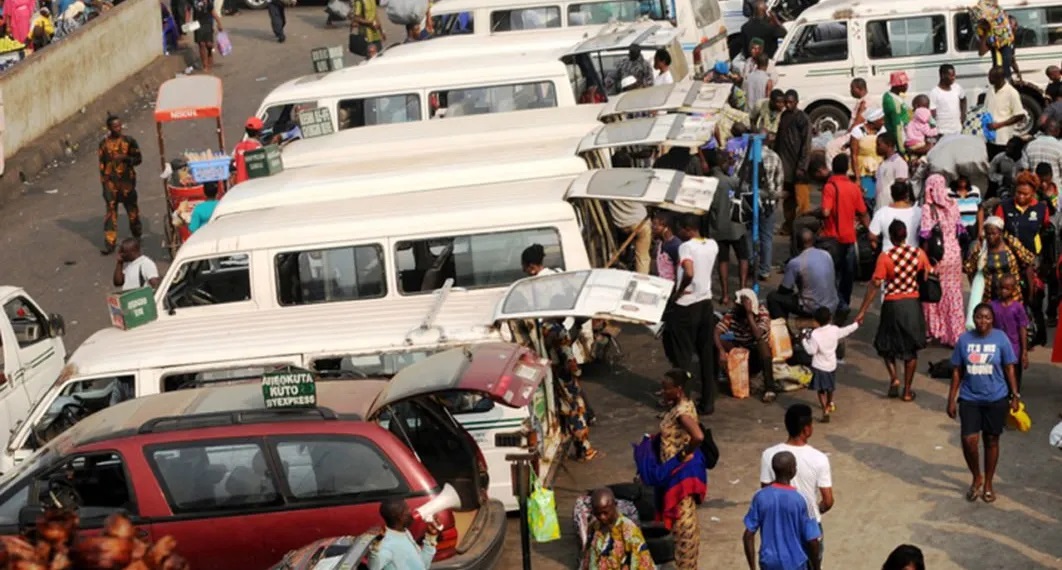
By Prince Charles Dickson PhD
There is a popular Nigerian lingo cum proverb that has graduated from street humour to philosophical thesis: “If dem explain Nigeria give you and you understand am, you fit craze.” It sounds funny. It is funny. But like most Nigerian jokes, it is also dangerously accurate.
Catherine’s story from Kubwa Road is the kind of thing that does not need embellishment. Nigeria already embellishes itself. Picture this: a pedestrian bridge built for pedestrians. A bridge whose sole job description in life is to allow human beings cross a deadly highway without dying. And yet, under this very bridge, pedestrians are crossing the road. Not illegally on their own this time, but with the active assistance of a uniformed Road Safety officer who stops traffic so that people can jaywalk under a bridge built to stop jaywalking.
At that point, sanity resigns.
You expect the officer to enforce the law: “Use the bridge.” Instead, he enforces survival: “Let nobody die today.” And therein lies the Nigerian paradox. The officer is not wicked. In fact, he is humane. He chooses immediate life over abstract order. But his humanity quietly murders the system. His kindness baptises lawlessness. His good intention tells the pedestrian: you are right; the bridge is optional.
Nigeria is full of such tragic kindness.
We build systems and then emotionally sabotage them. We complain about lack of infrastructure, but when infrastructure shows up, we treat it like an optional suggestion. Pedestrian bridges become decorative monuments. Traffic lights become Christmas decorations. Zebra crossings become modern art—beautiful, symbolic, and useless.
Ask the pedestrians why they won’t use the bridge and you’ll hear a sermon:
“It’s too stressful to climb.”
“It’s far from my bus stop.”
“My knee dey pain me.”
“I no get time.”
“Thieves dey up there.”
All valid explanations. None a justification. Because the same person that cannot climb a bridge will sprint across ten lanes of oncoming traffic with Olympic-level agility. Suddenly, arthritis respects urgency.
But Nigeria does not punish inconsistency; it rewards it.
So, the Road Safety officer becomes a moral hostage. Arrest the pedestrians and risk chaos, insults, possible mob action, and a viral video titled “FRSC wickedness.” Or stop cars, save lives, and quietly train people that rules are flexible when enough people ignore them.
Nigeria often chooses the short-term good that destroys the long-term future.
And that is why understanding Nigeria is a psychiatric risk.
This paradox does not stop at Kubwa Road. It is a national operating system.
We live in a country where a polite policeman shocks you. A truthful politician is treated like folklore—“what-God-cannot-do-does-exist.” A nurse or doctor going one year without strike becomes breaking news. Bandits negotiate peace deals with rifles slung over their shoulders, attend dialogue meetings fully armed, and sometimes do TikTok videos of ransoms like content creators.
Criminals have better PR than institutions.
In Nigeria, you bribe to get WAEC “special centre,” bribe to gain university admission, bribe to choose your state of origin for NYSC, and bribe to secure a job. Merit is shy. Connection is confident. Talent waits outside while mediocrity walks in through the back door shaking hands.
You even bribe to eat food at social events. Not metaphorically. Literally. You must “know somebody” to access rice and small chops at a wedding you were invited to. At burial grounds, you need connections to bury your dead with dignity. Even grief has gatekeepers.
We have normalised the absurd so thoroughly that questioning it feels rude.
And yet, the same Nigerians will shout political slogans with full lungs—“Tinubu! Tinubu!!”—without knowing the name of their councillor, councillor’s office, or councillor’s phone number. National politics is theatre; local governance is invisible. We debate presidency like Premier League fans but cannot locate the people controlling our drainage, primary schools, markets, and roads.
We scream about “bad leadership” in Abuja while ignoring the rot at the ward level where leadership is close enough to knock on your door.
Nigeria is a place where laws exist, but enforcement negotiates moods. Where rules are firm until they meet familiarity. Where morality is elastic and context-dependent. Where being honest is admirable but being foolish is unforgivable.
We admire sharpness more than integrity. We celebrate “sense” even when sense means cheating the system. If you obey the rules and suffer, you are naïve. If you break them and succeed, you are smart.
So, the Road Safety officer on Kubwa Road is not an anomaly. He is Nigeria distilled.
Nigeria teaches you to survive first and reform later—except later never comes.
We choose convenience over consistency. Emotion over institution. Today over tomorrow. Life over law, until life itself becomes cheap because law has been weakened.
This is how bridges become irrelevant. This is how systems decay. This is how exceptions swallow rules.
And then we wonder why nothing works.
The painful truth is this: Nigeria is not confusing because it lacks logic. It is confusing because it has too many competing logics. Survival logic. Moral logic. Emotional logic. Opportunistic logic. Religious logic. Tribal logic. Political logic. None fully dominant. All constantly clashing.
So, when someone says, “If dem explain Nigeria give you and you understand am, you fit craze,” what they really mean is this: Nigeria is not designed to be understood; it is designed to be endured.
To truly understand Nigeria is to accept contradictions without resolution. To watch bridges built and ignored. Laws written and suspended. Criminals empowered and victims lectured. To see good people make bad choices for good reasons that produce bad outcomes.
And maybe the real madness is not understanding Nigeria—but understanding it and still hoping it will magically fix itself without deliberate, painful, collective change.
Until then, pedestrians will continue crossing under bridges, officers will keep stopping traffic to save lives, systems will keep eroding gently, and we will keep laughing at our own tragedy—because sometimes, laughter is the only therapy left.
Nigeria no be joke.
But if you no laugh, you go cry—May Nigeria win.
Feature/OPED
Post-Farouk Era: Will Dangote Refinery Maintain Its Momentum?
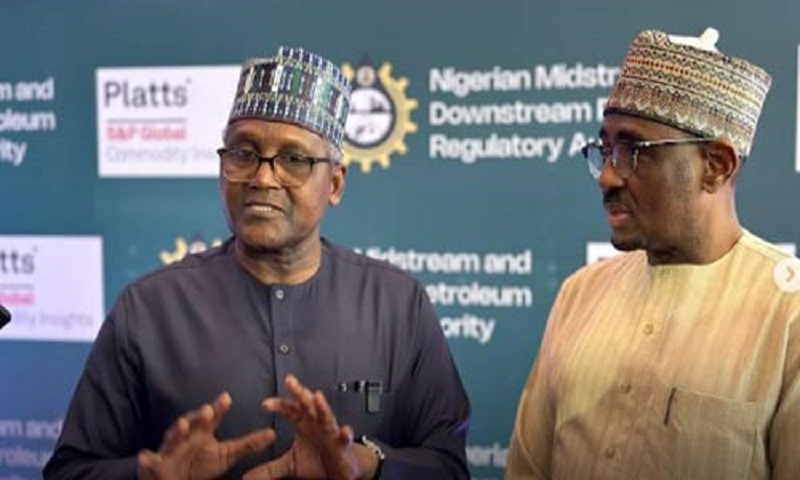
By Abba Dukawa
“For the marketers, I hope they lose even more. I’m not printing money; I’m also losing money. They want imports to continue, but I don’t think that is right. So I must have a strategy to survive because $20 billion of investment is too big to fail. We are in a situation where we will continue to play cat and mouse, and eventually, someone will give up—either we give up, or they will.” —Aliko Dangote
This statement reflects that while Dangote is incurring losses, he remains committed to his investment, determined to outlast competitors reliant on imports. He believes that persistence and strategy will eventually force them to concede before he does.
Aliko Dangote has faced unprecedented resistance in the petroleum sector, unlike in any of his other business ventures. His first attempt came on May 17, 2007, when the Obasanjo administration sold 51% of Port Harcourt Refinery to Bluestar Oil—a consortium including Dangote Oil, Zenon Oil, and Transcorp—for $561 million. NNPC staff strongly opposed the sale. The refinery was later reclaimed under President Yar’adua, a setback that provided Dangote a tough but invaluable lesson. Undeterred, he went on to build Africa’s largest refinery.
As a private investor, Dangote has delivered much-needed infrastructure to Nigeria’s oil-and-gas sector. Yet, his refinery faces regulatory hurdles from agency’s meant to promote efficiency and growth. Despite this monumental private investment in the nation’s downstream sector, powerful domestic and foreign oil interests may have influenced Farouk Ahmad, former NMDPRA Managing Director, to hinder the refinery’s operations.
The dispute dates back to July 2024, when the NMDPRA claimed that locally refined petroleum products including those from Dangote’s refinery were inferior to imported fuel. Although the confrontation appeared to subside, the underlying rift persisted. Aliko Dangote is not one to speak often, but the pressure he is facing has compelled him to break his silence. He has begun to speak out about what he sees as a deliberate targeting of his investments, as his petroleum-refining venture continues to face repeated regulatory and institutional challenges.
The latest impasse began when Dangote accused the NMDPRA of issuing excessive import licenses for petroleum products, undermining local refining capacity and threatening national energy security. He alleged that the regulator allowed the importation of cheap fuel, including from Russia, which could cripple domestic refineries such as his 650,000‑barrel‑per‑day Lagos plant.
The conflict intensified after Dangote publicly accused Farouk Ahmad, former head of NMDPRA, of living large on a civil servant’s salary. Dangote claimed Ahmad’s lifestyle was way too lavish, pointing out that four of his kids were in pricey Swiss schools. He took his grievance to the ICPC, alleging misconduct and abuse of office.
It’s striking how Nigerian office holders at every level have mastered the art of impunity. Even though Ahmad dismissed the accusations but the standoff prompting Ahmad’s resignation. But the bitter irony these “public servants” tasked with protecting citizens’ interests often face zero consequences for violating policies meant to safeguard the Nation and public interest.
The clash of titans lays bare deeper flaws in Nigeria’s petroleum governance. It shows how institutional weaknesses turn regulatory disputes into personal power plays. In a system with robust norms, such conflicts would be settled via clear rules, independent oversight, and transparent processes not media wars and public accusations.
Even before completion, the refinery’s operating license was denied. Farouk Ahmad claimed Dangote’s petrol was subpar, ordering tests that appeared aimed at public embarrassment. Dangote countered with independent public testing of his diesel, challenging the regulator’s claims.
He also invited Ahmad to verify the tests on-site, but the offer was declined. Moreover, NNPC initially refused to supply crude oil, forcing Dangote to source it from the United States a practice that continues.
President Tinubu later directed the NNPC to resume crude supplies and accept payment in naira, reportedly displeasing the state oil company. In addition to presidential directives, Farouk claimed Dangote was producing petrol beyond the approved quantity and insisted that crude oil be purchased exclusively in U.S. dollars a condition Dangote accepted.
From the public’s point of view, the Refinery is a game-changer for Nigeria, with the potential to end fuel imports and boost the economy. With a capacity of 650,000 barrels per day, it produces around 104 million liters of petroleum products daily, meeting 90% of Nigeria’s domestic demand and allowing exports to other West African countries.
The Dangote Refinery is poised to earn foreign exchange, stabilize fuel prices, and strengthen Nigeria’s energy security. However, the ongoing dispute surrounding the refinery underscores the challenges of aligning national interests with regulatory and institutional frameworks.
The Dangote Refinery’s growing dominance has sparked concerns among stakeholders like NUPENG and PENGASSAN, who fear it could lead to a private monopoly, stifling competition and harming smaller players. This concern stems from the refinery’s rejection of the traditional ₦5 million-per-truck levy on petroleum shipments.
However, Dangote has taken steps to address these concerns, reducing the minimum purchase requirement from 2 million liters to 250,000 liters, opening the market to smaller operators and strengthening distribution networks. The refinery has also purchased 2,000 CNG trucks to maintain operations, emphasizing its commitment to making energy affordable and accessible
Many are watching closely to see if Dangote’s actions are driven by a desire for transparency and fairness in Nigeria’s oil and gas sector or private business interests. Did Dangote genuinely want to fight the corruption going on in the sector?, Will Dangote refinery operate for the common good or seek market dominance? Did Farouk Ahmad act in the public interest or obstruct the refinery for hidden oil interests? Will the Dangote Refinery Maintain Its Momentum in the Post-Farouk Era?The dispute between Dangote and Farouk Ahmad remains shrouded in mystery, with the ICPC investigation likely to uncover the truth
To many, the government faces a delicate balancing act: protecting local refiners while ensuring fair competition. While some argue that Dangote’s success shouldn’t come at the expense of smaller players, others see it episodes like this reveal persistent contradictions: powerful interests, fragile institutions, and blurred lines between regulation and politics.The Petroleum Industry Act (PIA) promised a new era of clarity, efficiency, and accountability, but its implementation has been slow. The PIA’s success hinges on addressing these challenges.
What benefits one party can indeed threaten another. Despite entering the sector with good intentions, Dangote has faced relentless pushback, all eyes are on whether the refinery can sustain its momentum. Analysts and commentators are sharing their perspectives based on available data from relevant institutions. If anyone spreads false information, the truth will eventually come out
Dukawa is a journalist, public‑affairs analyst, and political commentator. He can be reached at [email protected]
-

 Feature/OPED6 years ago
Feature/OPED6 years agoDavos was Different this year
-
Travel/Tourism9 years ago
Lagos Seals Western Lodge Hotel In Ikorodu
-

 Showbiz3 years ago
Showbiz3 years agoEstranged Lover Releases Videos of Empress Njamah Bathing
-

 Banking7 years ago
Banking7 years agoSort Codes of GTBank Branches in Nigeria
-

 Economy3 years ago
Economy3 years agoSubsidy Removal: CNG at N130 Per Litre Cheaper Than Petrol—IPMAN
-

 Banking3 years ago
Banking3 years agoFirst Bank Announces Planned Downtime
-

 Banking3 years ago
Banking3 years agoSort Codes of UBA Branches in Nigeria
-

 Sports3 years ago
Sports3 years agoHighest Paid Nigerian Footballer – How Much Do Nigerian Footballers Earn



